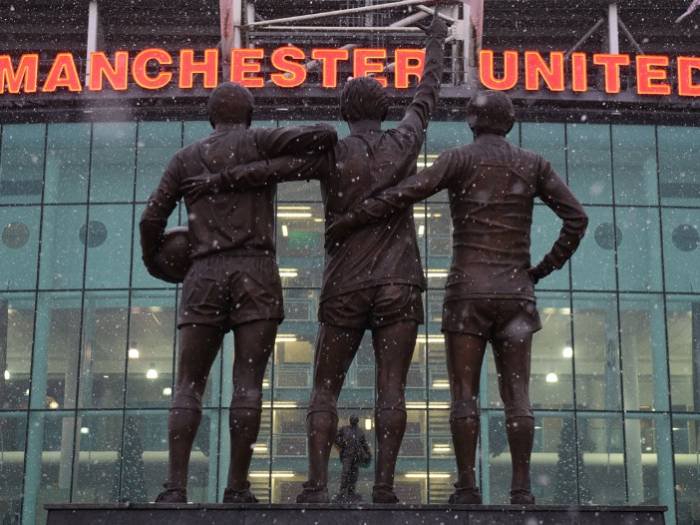Manchester United count cost of Covid-19 as debt rises to £455.5m

This is part of the £200m credit line to cover a soaring net debt of £455.5m as a result of the coronavirus pandemic.
United also announced a 2.6% growth in total revenue from £168.4m to £172.8m in the last three months of 2020 attributed to a 68% increase in broadcasting revenues to £108.7m.
The figure was attributed to United’s return to the Champions League. “Demand for live football remains strong,” Manchester United executive vice-chairman, Ed Woodward, said while announcing the club’s second-quarter results.
Woodward also reflected on the impact of Covid-19, a “once-in-a-century level crisis” that “tested our club’s resilience and values,” and discussed the potential return of supporters to Old Trafford. “We are seeing some positive examples around the world of live events with reduced capacity crowds with social distancing,” Woodward added.
“The successful rapid rollout of vaccines and falling rates of infections in the UK makes us optimistic about the government’s road map out of the lockdown, including plans for the gradual reopening of sports stadiums with spectators, beginning this spring. Initially, this will be with limits on capacity, but we’re hopeful of crowds ramping back up to full capacity next season.”
Matchday revenue in the three months ending 31 December was £1.5m, a 95.5% drop year-on-year from £32.7m due to all matches being played behind closed doors. Cliff Baty, Manchester United’s chief financial officer, confirmed the club’s net debt of £455.5m, an increase of £64.3m over the prior year, was a result of lost matchday revenue.
“We are well-positioned to weather the current uncertainty and optimistic for the future” Baty said. Net debt is calculated as non-current and current borrowings minus cash and cash equivalents. The increase resulted in “a drawing-down of £60m of our available £200m credit line during the quarter”, Baty confirmed.
United revenue was down 7.2% year-on-year to £281.8m, with profit dropping by 6.9% to £33.8m. Total broadcasting revenue rose to £156.3m, an increase of 60.1% compared with the same period in 2019. Commercial revenue was down 19.1% year-on-year to £122.3m.
The 20-time Premier league champions went out of the Champions League in December and are currently second in the Premier League, but 14 points adrift of Manchester City with 11 matches remaining. Despite United’s potential title challenge appearing to fizzle out, Woodward took an optimistic tack about the club’s competitive health across the board.
“The progress made by Ole Gunnar Solskjær and the players this season is clear, and our thriving academy and women’s team are also adding to the optimism we feel about the future on and off the pitch,” he said.
The club admitted there are “near-term challenges” that need to be met as matches will continue to be played behind closed doors until the final week of the Premier League season.
Woodward added that he was “pleased with this season’s on-pitch progress”. United are currently second in the Premier League despite recent poor form.
Woodward also expects a likely decrease in domestic Premier League TV rights to be compensated by a rise in overseas deals.
The Premier League is not due to go to market until the end of the season for the deal to run from 2022 to 2025, but Woodward said: “Growth in the UK is likely to be lower than the last two rights cycles but that should be covered by big growth on the international cycle. We are already hearing positivity regarding the deals as they come through.”
In 2019-20 financial reports, United announced an estimated £70m drop in revenue in the period to 30 June 2020 as a direct result of the coronavirus pandemic.

